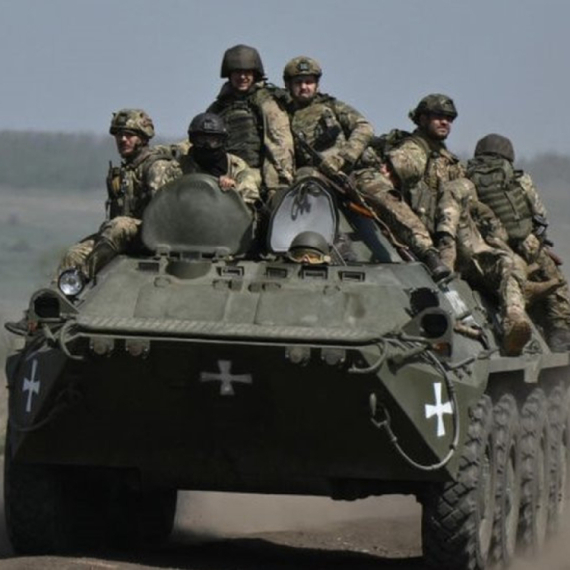IMF mission arrives in Belgrade
The International Monetary Fund (IMF) mission has arrived in Belgrade today to begin the second revision of the ongoing stand-by arrangement.
Monday, 24.08.2009.
10:14

The International Monetary Fund (IMF) mission has arrived in Belgrade today to begin the second revision of the ongoing stand-by arrangement. The mission will be headed by Albert Jaeger, who also led a delegation to Serbia in March, when an agreement was reached for a loan worth EUR 2.9bn. IMF mission arrives in Belgrade They are coming to see whether Serbia has completely fulfilled all previously agreed upon obligations and what the state plans to do in order to maintain macro-economic stability. Whether of not Serbia will receive the second installment of the previously approved loan will depend on this visit. Serbian government officials have stated earlier that they will be asking for the IMF to allow a deficit increase up to 4.5 percent of the GDP, and will offer cuts in the public administration in return. Labor Minister Rasim Ljajic met on Monday with the IMF delegation to discuss measures for alleviating the effects of the recession. The IMF delegation was particularly interested in reforms of the pension and social security systems and on amending existing legislation or passing new laws on these sectors, the ministry said in a release. Referring to the government measures for alleviating the effects of the global recession, Ljajic said the government has proposed both long and short term measures for alleviating the effects of the global recession. The goal of the short term government measures is to help the most vulnerable population categories, as the number of people living below the poverty threshold has increased, Ljajic said. The long term measures, which will include passing new laws on pension and social security systems, are aimed at a more just distribution of social payments through intensified control, he said. Economic expert Professor Dragan Djuricin said earlier today that this could have many positive effects on the budget. “The government has chosen to decrease wages in the public sector and to not increase taxes because of the fall of aggregate demand, and because of the further decreas of activities in taxation and filing the budget." "Therefore, the government is probably thinking that if the current level of employment was kept, and wages were decreased, there would be a pressure put on corruption, because those who are unsatisfied with their wages and have a mandate for doing a job will probably find other ways to make money,” Djuricin said. He also said that it is realistic for Serbia to withdraw the second installment of the loan. However, it is yet to be seen whether the government will be able to use part of the money for plugging the holes in the budget. During the visit to Serbia, which will last until September 2, officials of the IMF will be talking to representatives of the private sector as well as with academic officials. The IMF delegation will also be meeting with Prime Minister Mirko Cvetkovic, Finance Minister Diana Dragutinovic.
IMF mission arrives in Belgrade
They are coming to see whether Serbia has completely fulfilled all previously agreed upon obligations and what the state plans to do in order to maintain macro-economic stability.Whether of not Serbia will receive the second installment of the previously approved loan will depend on this visit.
Serbian government officials have stated earlier that they will be asking for the IMF to allow a deficit increase up to 4.5 percent of the GDP, and will offer cuts in the public administration in return.
Labor Minister Rasim Ljajić met on Monday with the IMF delegation to discuss measures for alleviating the effects of the recession.
The IMF delegation was particularly interested in reforms of the pension and social security systems and on amending existing legislation or passing new laws on these sectors, the ministry said in a release.
Referring to the government measures for alleviating the effects of the global recession, Ljajić said the government has proposed both long and short term measures for alleviating the effects of the global recession.
The goal of the short term government measures is to help the most vulnerable population categories, as the number of people living below the poverty threshold has increased, Ljajić said.
The long term measures, which will include passing new laws on pension and social security systems, are aimed at a more just distribution of social payments through intensified control, he said.
Economic expert Professor Dragan Đuričin said earlier today that this could have many positive effects on the budget.
“The government has chosen to decrease wages in the public sector and to not increase taxes because of the fall of aggregate demand, and because of the further decreas of activities in taxation and filing the budget."
"Therefore, the government is probably thinking that if the current level of employment was kept, and wages were decreased, there would be a pressure put on corruption, because those who are unsatisfied with their wages and have a mandate for doing a job will probably find other ways to make money,” Đuričin said.
He also said that it is realistic for Serbia to withdraw the second installment of the loan.
However, it is yet to be seen whether the government will be able to use part of the money for plugging the holes in the budget.
During the visit to Serbia, which will last until September 2, officials of the IMF will be talking to representatives of the private sector as well as with academic officials.
The IMF delegation will also be meeting with Prime Minister Mirko Cvetković, Finance Minister Diana Dragutinović.
















































Komentari 0